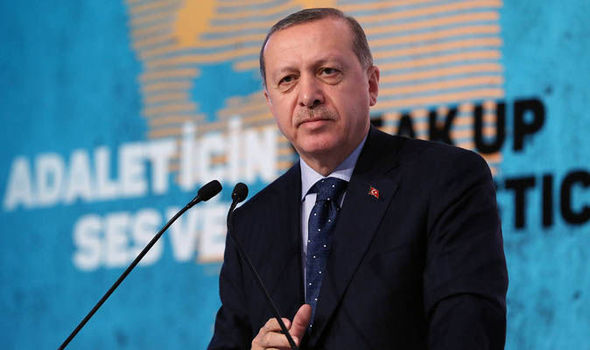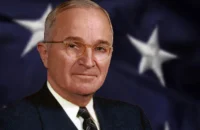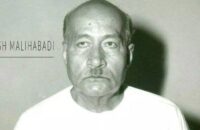By Tufail Ahmad
Turkey is in the throes of radical transformation. On the night of December 31, thirty-nine people including two Indians were killed in a shooting spree at a New Year’s eve party at the Reina club in Istanbul. Similar terror attacks have taken place in Turkey over the past few years, but this was perhaps the first attack formally claimed by the Islamic State (ISIS), the Jihadi group once fully supported by Turkey.
Some big attacks include the triple suicide bombing at Ankara airport in which four dozen people including the three terrorists were killed on June 28. There are two types of threats Turkey faces: the Jihadi threat from ISIS and the threat from Kurdish guerrillas who fight for a Kurdish state. Both types of terror attacks have taken place in Turkey in recent years.
Till 1924, the Islamic world was led by the Ottoman Caliph based in Turkey. During the First World War (1914-1918), the Turkey-led Caliphate began disintegrating. Around this time, Indian Muslims led by Maulana Muhammad Ali Jauhar and his brother Maulana Shaukat Ali as well as Mahatma Gandhi and Maulana Abul Kalam Azad supported the Khilafat Movement for the restoration of the Caliphate, something the ISIS is trying to revive now.
The Arab nations, having been mistreated by the Ottoman caliph, disliked Maulana Azad for supporting Turks, though he was respected for his scholarship. Speeches were delivered in Mecca in which Maulana Abul Kalam Azad was dubbed as Abul Kelab, or the father of dogs. Finally, Mustafa Kemal Ataturk abolished the caliphate in 1924 and established a secular government.
The secular nature of Turkey is now being eradicated comprehensively and radically by Turkey’s elected leader Recep Tayyip Erdogan. In the international system of states, there are two types of regimes: one, democratic regimes which are responsible to their people, who can replace the rulers at the next election; two, non-democratic regimes which are not accountable to their people and cannot be replaced by people.
Some examples of democratic regimes are the US and India where any citizen can become a ruler. The examples of non-democratic regimes are the theocratic state of Saudi Arabia and the autocratic states of North Korea and Cuba, where rulers do not trust their people and therefore transfer power to sons and brothers only.
Turkey represents a third type of regime. In recent years, some Islamist parties used election as a means to capture power and subsequently change the system to suit their ideological agenda. For example, Imam Khomeini seized power in the 1979 Revolution and later used elections to retain power while enforcing Sharia rule. The Iranian state sent killers to murder Salman Rushdie. In Gaza, Hamas used elections to capture power and advances its jihadi agenda against Israel. In Lebanon, Hezbollah used elections to get into power. In Egypt, the Muslim Brotherhood captured power through elections and began to change the system. In Turkey, Erdogan came to power, first serving as the prime minister from 2003 and now as the president, and began changing the system.
In terms of the policies implemented under Erdogan, Turkey’s Islamism has also been described as Erdoganism. For Erdoganism, Islam matters, not people. Erdogan seeks to revive the Ottoman caliphate, as his visions are etched in stone in the 1,100-room presidential palace he has built. Here is how Erdogan’s Islamism enters people’s lives.
He lifted ban on headscarf in schools; he said women cannot be equal to men; he urged women to have at least three children. He advocated alcohol-free zones, cracked down on secularists and journalists, directed schools to teach Turkish in Arabic script. Like the Taliban, Erdogan objected to the use of the term “moderate Islam” saying: “Islam cannot be classified as moderate or not.” He is building a $100-million mega mosque near Washington, the money he could spend on 1,000 Turkish youths to study computer sciences.
Ozgur Unluhisarcikli, Ankara office director of the German Marshall Fund, recently said: “There is no magic wand or quick fix to Turkey’s terrorism problem”; “The ISIS threat in Turkey is not only a spill over the Syrian civil war, but also a reflection of the radicalisation within Turkey and polarisation.” This radicalisation has been underway ever since Erdogan came to power following the victory of the Justice and Development Party, an Islamist party, in 2002 elections. Much like jihadists, Erdogan has earlier said, “Sovereignty unconditionally and always belongs to Allah.” Before becoming the prime minister, Erdogan publicly read a poem, “The mosques are our barracks, the domes our helmets, the minarets our bayonets and the faithful our soldiers.”
In recent years, Erdoganshut his eyes when Jihadi youths from Britain and Europe were going to Syria via Turkey to join the ISIS. He did so because the government in Syria is led by Bashar Al-Assad, a Shia Muslim leader supported by Iran and Russia. In fact, Erdogan has supported the ISIS in order to undermine Syria’s Shia regime.
Under Erdoganism, Turkey has created hospitable environment for Islamists and their armed ideological cousins, jihadists. Turkey is one of the biggest centres of recruitment for ISIS. More than 1,000 Turkish nationals are estimated to have joined ISIS, though the number could be around 4,000.Turkey is monitoring an additional 4,000 sympathisers of ISIS and Al-Qaeda who are based in Syria. This process of radicalisation of Turkish youths began soon after the conflict rose in Syria around 2011.
In 2015, Turkish daily Hurriyet sent 11 journalists and photographers to five Turkish cities, and to France and Germany, to trace the paths taken by Turkish youths to join ISIS. The five cities considered recruitment hubs for ISIS were Gaziantep, Kocaeli, Ankara, Diyarbakır and Istanbul. In Gaziantep, a grocer said that “up to 4,000” locals joined ISIS. In Kocaeli, a coffee shop owner said “a thousand” youths joined ISIS, though others put the number at ten.
Others noted that 3,000 Turks hold top positions in ISIS. From the Hacıbayram area of Ankara, 100 youths joined ISIS, though others in denial put the number just as three. In Diyarbakır, the Hurriyet reporters were told that ISIS’s “main platforms for its organisational activities are Facebook, dervish lodges and bookstores.” In Istanbul, a youth who had joined Al-Qaeda said: “(Hijra or migration) is a religious obligation, just like jihad or daily prayers.”
Erdogan has partially ended some support for ISIS. But it is too late. Radicalisation has already seeped into Turkish society. Turkey’s secular military is opposed to Erdogan. After the failed military coup in July, Erdogan launched a widespread crackdown on secular groups in Turkey. After the coup, he acted like a dictator and sacked tens of thousands of military officers, judges, journalists, professors and school teachers. On various pretexts, the Erdogan government has cracked down against all Kurdish groups.
On November 4, it arrested opposition leader Selhattin Demirtas and 10 other Kurdish members of Parliament. It has also sacked 30 Kurdish mayors, shut 20 Kurdish media channels and suspended more than 11,000 Kurdish teachers despite the fact that they were not involved in the coup. Turkey is no more democracy with an independent judiciary, a free press and a neutral civil service. Under Erdogan, Turkey is becoming a Sunni theocratic state, much like Iran became a Shia theocratic state after the 1979 Revolution.
__
Former BBC journalist Tufail Ahmad is Executive Director of the Open Source Institute, New Delhi. He is the author, Jihadist Threat to India – The Case for Islamic Reformation by an Indian Muslim. He tweets @tufailelif




























One Comment